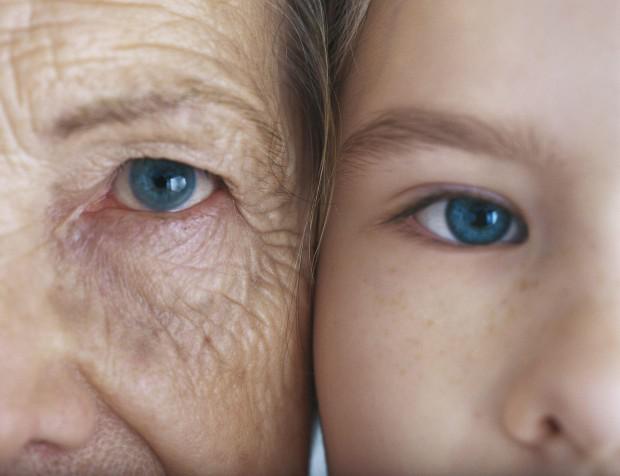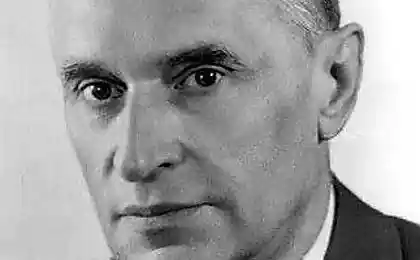591
The evidence that lifestyle changes can reverse the aging tide
But the appearance of the elixir of eternal youth, we still daleki
The new five-year study shows that changes in lifestyle - proper diet, exercise and stress management - at the cellular level could turn back the aging process.

The authors of the study were Dean Ornish, whose job is to demonstrate the benefits of a healthy lifestyle, and Elizabeth Blackburn was awarded the Nobel Prize for the discovery of telomeres and the aging process.
The key object of the study were just telomeres (parts of chromosomes that are responsible for aging at the cellular level) and their relationship with the way of life. Telomeres are formed on the end of chromosomes and provide protection for them - they can be compared with the solid tips of shoelaces, shoelaces which protect against wear.
But telomeres become shorter as we age. Human telomere length is usually determined by age, and shortening is often associated with certain diseases: cancer, heart disease, obesity, stroke and diabetes.
Telomeres have not lengthened, but that scientists have observed this phenomenon. Because of this, they believe, may have stumbled upon a technique that can turn back the aging process at the cellular level, albeit briefly.
The subjects in the control group demonstrated a lengthening of telomeres as they became to adopt healthy lifestyles and less interact with electronic devices. Conclusions of great interest for medicine, but do not exaggerate their importance is: aging - an incredibly complex process, and telomere shortening is just one of many factors.
Nevertheless, it is proved that the way of life that we lead, directly affects our health.
via factroom.ru

The new five-year study shows that changes in lifestyle - proper diet, exercise and stress management - at the cellular level could turn back the aging process.

The authors of the study were Dean Ornish, whose job is to demonstrate the benefits of a healthy lifestyle, and Elizabeth Blackburn was awarded the Nobel Prize for the discovery of telomeres and the aging process.
The key object of the study were just telomeres (parts of chromosomes that are responsible for aging at the cellular level) and their relationship with the way of life. Telomeres are formed on the end of chromosomes and provide protection for them - they can be compared with the solid tips of shoelaces, shoelaces which protect against wear.
But telomeres become shorter as we age. Human telomere length is usually determined by age, and shortening is often associated with certain diseases: cancer, heart disease, obesity, stroke and diabetes.
Telomeres have not lengthened, but that scientists have observed this phenomenon. Because of this, they believe, may have stumbled upon a technique that can turn back the aging process at the cellular level, albeit briefly.
The subjects in the control group demonstrated a lengthening of telomeres as they became to adopt healthy lifestyles and less interact with electronic devices. Conclusions of great interest for medicine, but do not exaggerate their importance is: aging - an incredibly complex process, and telomere shortening is just one of many factors.
Nevertheless, it is proved that the way of life that we lead, directly affects our health.
via factroom.ru























